At Nicole Metzger Law, we often hear clients express concerns that filing for bankruptcy is akin to a financial death sentence — a decision that will haunt them for the rest of their lives. But the truth is, bankruptcy doesn’t spell doom for your financial future. In fact, it can be the exact lifeline you need to regain control of your finances and rebuild your life with a fresh start.
In this article, we’ll dispel the myths surrounding bankruptcy and explain why it isn’t the catastrophic outcome many fear. We’ll also explore how bankruptcy can serve as a financial tool to help you move forward with confidence and clarity.
The Stigma Around Bankruptcy: Why Does It Feel So Final?
The negative perception of bankruptcy often stems from fear and misunderstanding. Popular culture and societal narratives tend to paint bankruptcy as a failure — a last resort taken only by those who’ve lost everything.
However, many successful people have filed for bankruptcy and gone on to rebuild their finances and lead prosperous lives. Bankruptcy isn’t about failure. It’s about making a smart decision to deal with overwhelming debt, and it exists to provide relief and protection for people in dire financial situations.
At Nicole Metzger Law, we want to shift the conversation. Filing for bankruptcy doesn’t mean you’ve reached the end of the line; rather, it means you’re taking control of your financial destiny, choosing to stop drowning in debt and start anew.
Myth vs. Reality: Debunking Common Bankruptcy Misconceptions
Myth 1: Bankruptcy Will Ruin Your Credit Forever
One of the most common fears we encounter is that bankruptcy will permanently destroy your credit score. While it’s true that filing for bankruptcy will impact your credit — it stays on your credit report for up to 10 years — it’s not the financial death sentence many people think it is.
The reality is, if you’re considering bankruptcy, your credit may already be suffering due to missed payments, defaults, or maxed-out credit cards. Filing for bankruptcy can actually serve as the first step in repairing your credit, giving you the opportunity to eliminate toxic debt and start rebuilding from a clean slate.
At Nicole Metzger Law, we help our clients understand that while bankruptcy does affect credit in the short term, it’s not forever. In fact, many people who file for bankruptcy start rebuilding their credit within just one to two years. With responsible financial management, you can raise your credit score faster than you might think.
Myth 2: Bankruptcy Means You Lose Everything
Another widespread misconception is that filing for bankruptcy means you’ll lose all your possessions, including your home, car, and other valuable assets. This isn’t the case.
Bankruptcy law includes exemptions that protect certain types of property from being liquidated to pay creditors. For example, depending on your state’s exemption laws, you may be able to keep your primary residence, your car (up to a certain value), and other essential items like household furnishings, clothing, and retirement accounts.
In Chapter 13 bankruptcy, you’re able to keep all of your property while reorganizing your debts and creating a repayment plan. Even in Chapter 7 bankruptcy, which involves liquidating some assets, there are protections in place to help you retain important property. At Nicole Metzger Law, we’ll work with you to determine what exemptions apply in your situation, ensuring that you don’t lose the things that matter most.
Myth 3: Bankruptcy Means You’ll Never Be Able to Borrow Money Again
Many people fear that once they file for bankruptcy, no lender will ever trust them again, and they’ll be unable to secure credit for the foreseeable future. This simply isn’t true.
While bankruptcy does make borrowing more challenging in the short term, it doesn’t eliminate your ability to borrow entirely. In reality, most people start receiving offers almost immediately — many clients get car loan solicitations in the mail as early as the week after filing Chapter 7 or Chapter 13. Once the case is discharged, most (if not all) begin receiving credit card and loan offers. Creditors know that a debtor cannot file another Chapter 7 for eight years, which makes lenders more willing to extend credit because they understand the debt will have to be repaid — and can be pursued in court if it isn’t. These offers may come with higher interest rates at first, but with responsible financial management, you can rebuild your creditworthiness and eventually qualify for better terms.
At Nicole Metzger Law, we help clients understand that bankruptcy is a temporary hurdle, not a permanent roadblock. Once your debts are discharged and you’ve completed your bankruptcy case, you can begin the process of rebuilding your financial profile and, over time, regain access to credit.
How Bankruptcy Offers a Fresh Start
The core purpose of bankruptcy is to provide people overwhelmed by debt with a fresh financial start. It’s not about punishing you for financial missteps; it’s about giving you the opportunity to wipe the slate clean and start over. Whether you’re dealing with crushing credit card debt, medical bills, personal loans, or even facing foreclosure, bankruptcy is designed to offer a path toward financial recovery.
Chapter 7 Bankruptcy: Eliminate Unsecured Debt
Chapter 7 bankruptcy, also known as “liquidation bankruptcy,” allows you to discharge unsecured debts, such as credit card balances, medical bills, and personal loans, so you can start fresh without the weight of unmanageable debt. It’s a relatively quick process, typically lasting four to six months, and provides a complete discharge of qualifying debts.
While you may choose to surrender non-exempt assets for liquidation, most people who file for Chapter 7 are able to keep the majority of their possessions, thanks to bankruptcy exemptions and the ability to pay for non-exempt assets should they so choose.
Chapter 13 Bankruptcy: A Path to Reorganization
Chapter 13 bankruptcy, often referred to as “reorganization bankruptcy,” allows you to retain your property while creating a structured repayment plan. Over three to five years, you’ll repay a portion of your debts based on your income and assets, and at the end of the repayment period, any remaining qualifying debt will be discharged.
This option is ideal for those who have regular income and want to avoid losing assets like their home or car while catching up on missed payments.
At Nicole Metzger Law, we’ll help you determine which type of bankruptcy is right for your situation and ensure you take full advantage of the protections and benefits offered by bankruptcy law.
Bankruptcy as a Financial Tool, Not a Death Sentence
It’s essential to view bankruptcy not as a dead-end but as a financial tool that can help you regain control of your finances. Here’s how bankruptcy can empower you:
1. Immediate Relief from Creditors
Once you file for bankruptcy, an automatic stay goes into effect. This legal provision halts all collection actions against you, including creditor phone calls, wage garnishments, foreclosure proceedings, and lawsuits. It gives you breathing room to reassess your financial situation without the constant stress of collection efforts.
2. Eliminate Overwhelming Debt
Whether you’re drowning in medical bills, credit card debt, or other unsecured loans, bankruptcy can eliminate these obligations, freeing you from financial burden. The discharge of debt provides the opportunity to move forward with a clean slate.
3. Protect Your Future
Bankruptcy provides a clear path toward financial recovery. Once your debts are discharged, you can focus on rebuilding your credit, saving for the future, and working toward long-term financial stability. At Nicole Metzger Law, we’ll guide you through this process step by step, ensuring you understand the best ways to rebuild and protect your future financial health.
Life After Bankruptcy: Rebuilding Your Financial Health
Filing for bankruptcy is just the beginning of your financial recovery. While bankruptcy helps eliminate debt, the next step is rebuilding your financial life. Here are a few tips for regaining financial stability after bankruptcy:
1. Create a Budget
Start by setting up a realistic budget that covers your necessary expenses (rent, utilities, food, etc.) while also accounting for savings. Stick to this budget as closely as possible to avoid future financial strain.
2. Build an Emergency Fund
Once you’ve regained financial stability, focus on building an emergency fund. Aim to save three to six months’ worth of living expenses to provide a cushion in case of unexpected expenses or job loss.
3. Use Credit Responsibly
While you may receive credit offers soon after bankruptcy, be selective about how and when you use credit. Consider starting with a secured credit card to rebuild your credit history. Make timely payments and keep your balances low to gradually improve your credit score.
At Nicole Metzger Law, we’re committed to helping our clients not only navigate bankruptcy but also thrive in the aftermath. We provide guidance on how to restore your credit, manage your finances, and avoid falling back into debt.
Bankruptcy as a New Beginning
Far from being a financial death sentence, bankruptcy offers a powerful solution to overwhelming debt. At Nicole Metzger Law, we work with clients every day who are struggling with financial burdens, and we’ve seen firsthand how bankruptcy can change lives for the better.
If you’re considering bankruptcy, don’t let fear hold you back. Reach out to us today, and let’s discuss how we can help you regain control of your finances and build a brighter, debt-free future.

